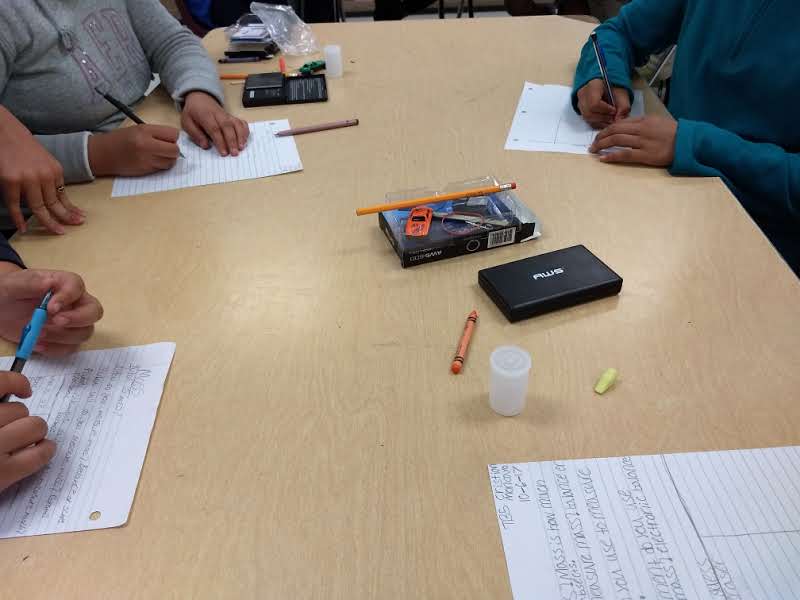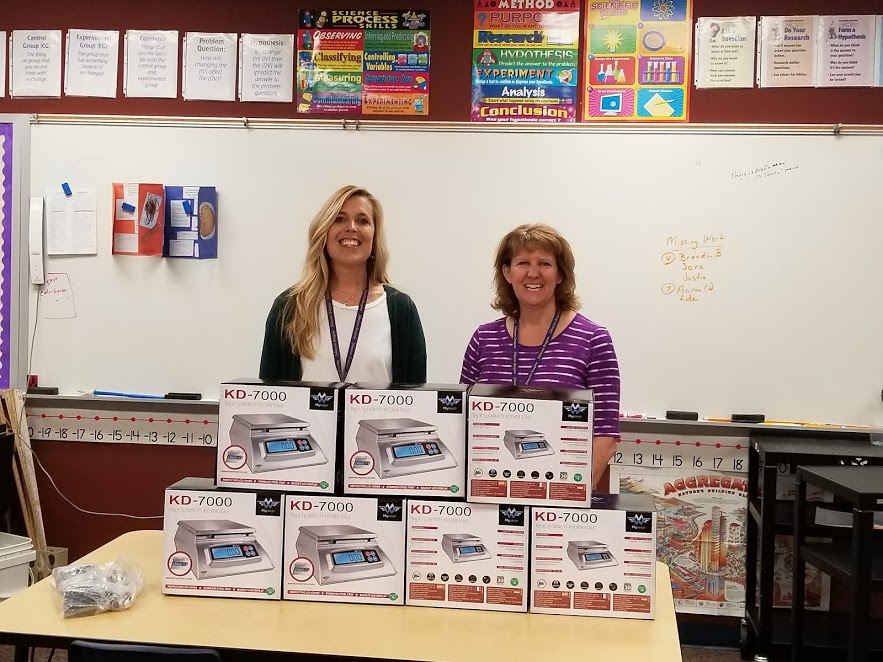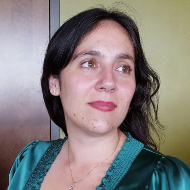This fall, thanks to the generosity of our donors and supporters, we were able to provide ten science teachers with equipment they need to give their students a chance to experience science for themselves. Our conversations with teachers across the state of Iowa during our pilot phase, and now nationwide since our national expansion, indicate that many teachers lack the scientific equipment they need to teach even basic scientific principles, much less complex concepts like evolution and climate change. NCSE Science Booster Club (SBC) Back-to-School Micro-Grants program helps fill at least a small part of that need. In 2015 and 2016, we gave micro-grants to seventeen teachers in Iowa, benefitting 5,100 students.
In 2017, for the first time, we opened the program to all states where the SBC program is currently active, we received scores of applications. After evaluating applications for need and number of students served, with tiebreaker points for direct applications to climate change or evolution education, we were able to help meet the needs of ten teachers, benefitting an astonishing 3,300 additional students a year with new durable equipment.
The most common request we received was for scales. We received dozens of reports from teachers whose schools had only broken or grossly inadequate measurement equipment. In several cases, schools serving large numbers of students had only one functional scale, most commonly a single triple-beam balance. Many schools also requested thermometers, reporting that their schools had no temperature measurement equipment at all.
Stephanie Toney, who teaches in a high-poverty middle school in Oklahoma City, Oklahoma, received thermometers, digital scales, and density cubes; all basic measurement equipment that her school could not afford, and that she intends to use to meet standards related to climate change. Of her need for basic equipment, she writes “for example, something as simple as measuring the rise in temperature between a container with air and a container with water when placed in the sun is not possible without thermometers for each partner pair.” Toney works with 225 students a year, and intends to share this basic equipment with her department, meaning that the gift will benefit even more kids. She received her equipment last week, and has already begun using it to teach her students about mass. She reports that her students found “that they were terrible at estimating mass and that their actual measurements were very far off their estimates … It makes them feel like real scientists.”

Her middle school students thank us for the gift, and Toney is confident that she will be able to use this basic equipment to help her students learn about and apply basic scientific concepts to understand climate change like scientists: through measurement, modeling, and experimentation.
We were also able to grant scales to Raynee Sparks, who teaches at a large middle school outside of Des Moines, Iowa. Her school had some measurement equipment, but it was unable to accurately measure small masses, making it difficult for her school’s Earth Science team to bring their curriculum in alignment with NGSS. As her school shifts towards NGSS implementation, she and her fellow science teachers are eager to bring more lessons about climate change to their students, but had no equipment budget to meet these needs. Over the next eighteen months, Sparks and her colleagues will use these scales to enhance their laboratory exercises, providing hands-on science opportunities to about 1,100 students.

We’ll bring you more stories in upcoming posts. We congratulate our winners, and are proud to help support them in their hard work. It is inspiring that so many science teachers are passionate about giving their students a genuine experience of science. Supporting science teachers means that more students will get the chance to learn about evolution and climate change through direct experimentation, not just from books. Most teachers want that, but not all of them have what they need. Your support of NCSE helps these dedicated, passionate professionals get the tools and the support they need to do the job.

